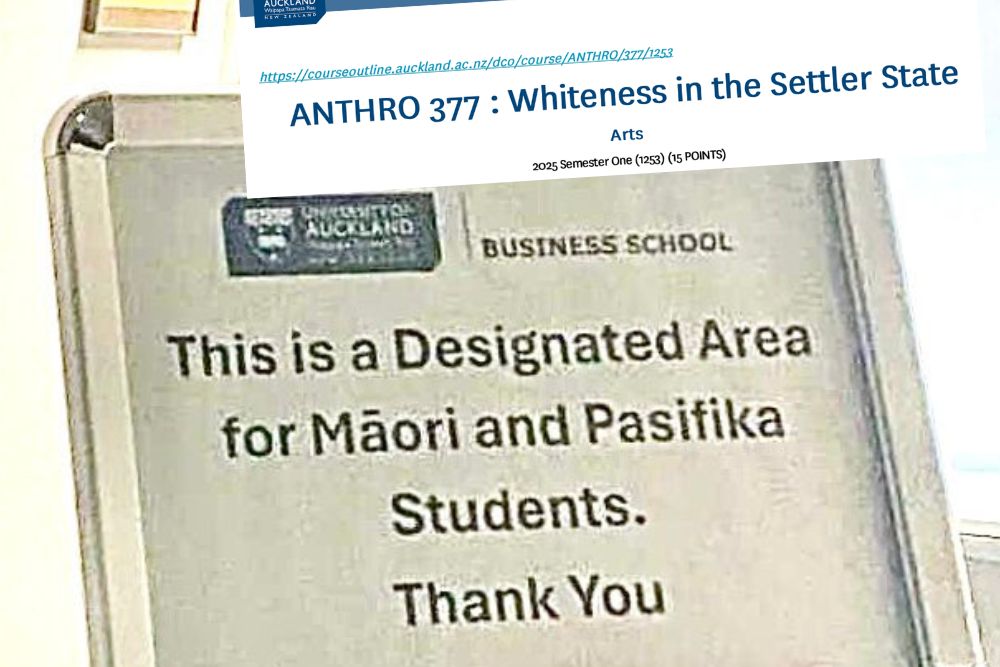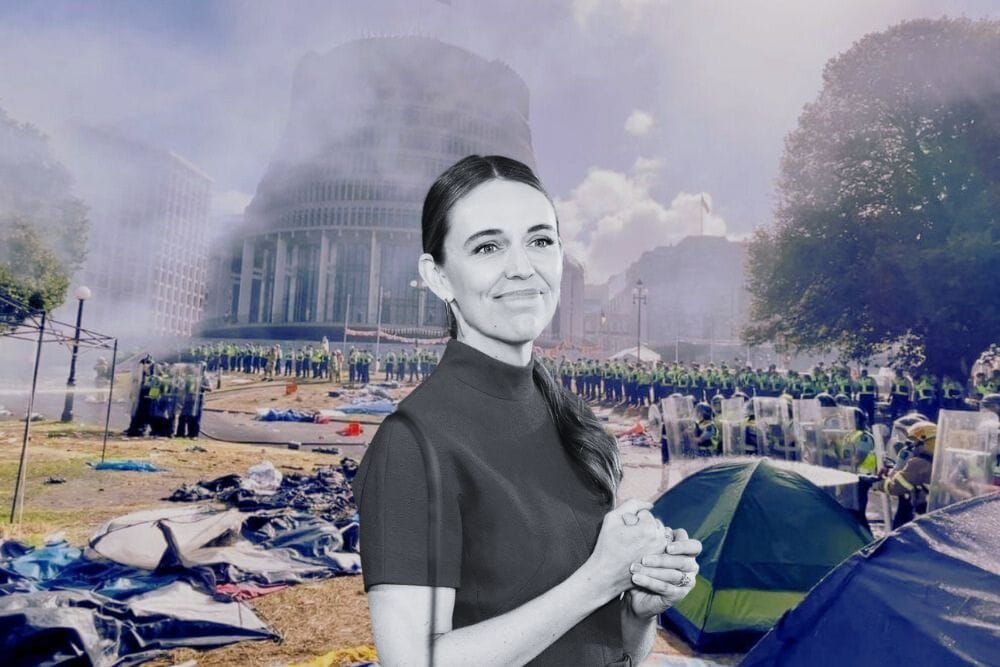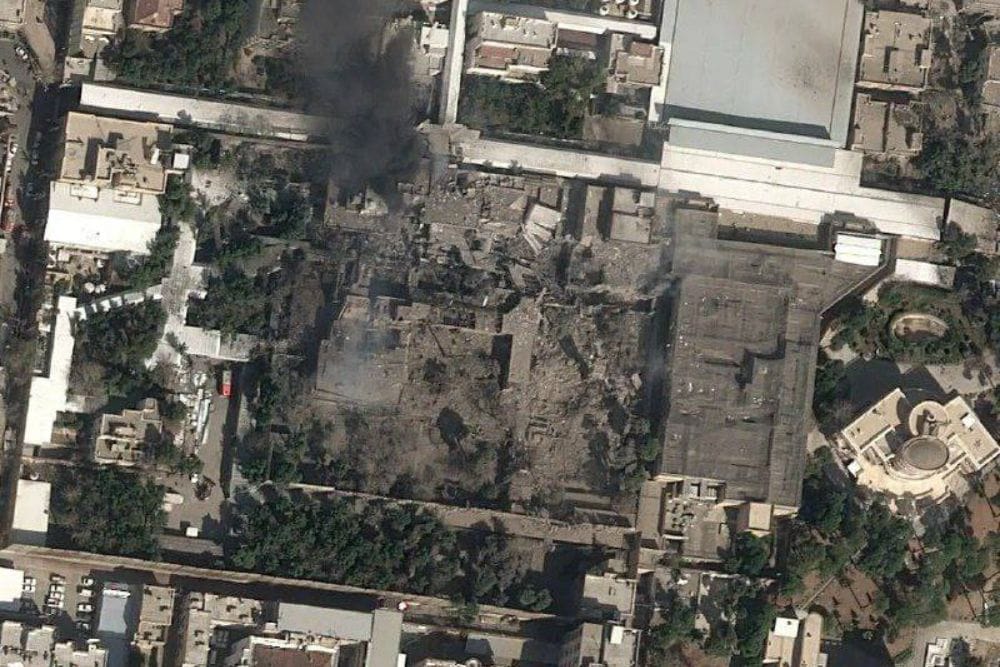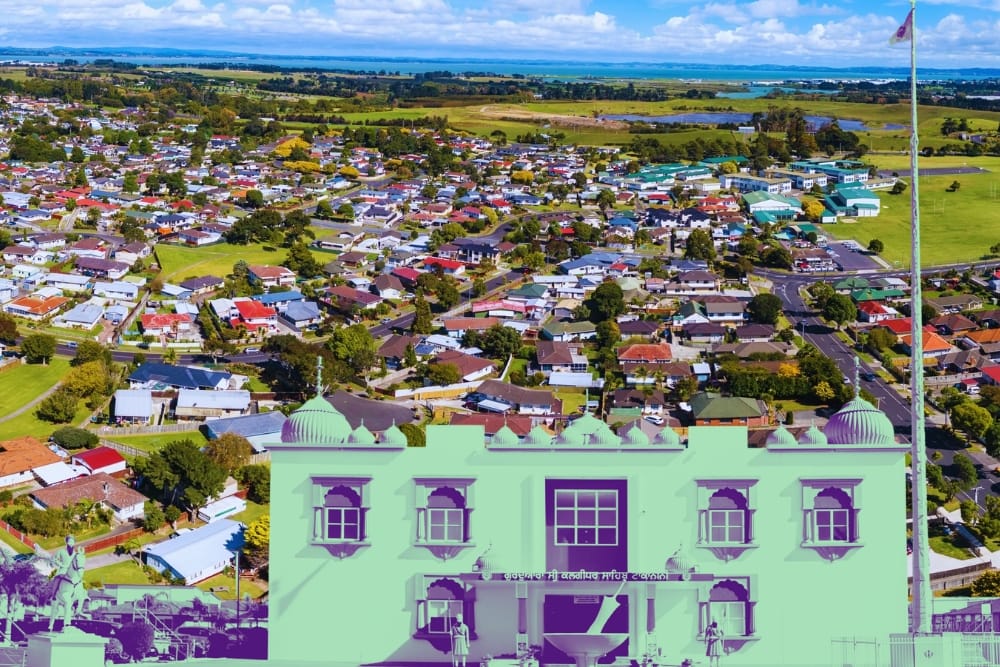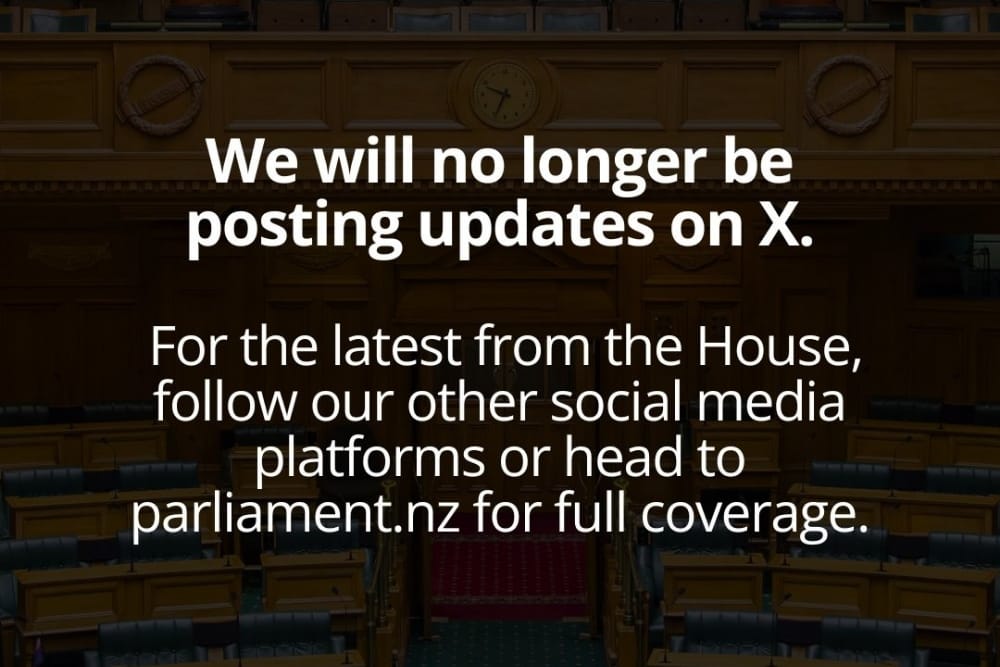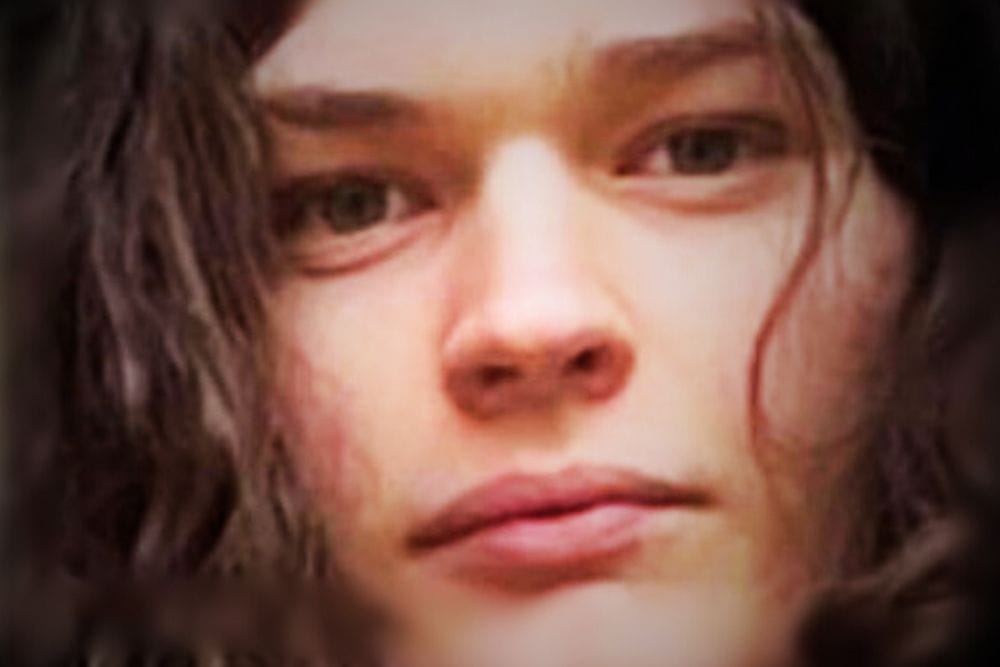By Elliot Ikilei
My daughter recently asked me if she is going to university. My wife and I have raised our children with the expectation that they will engage in tertiary education.
That my girl is thirteen years old has no bearing on the validity of her question, as I discuss with her psychology, politics, conflict resolution…oh, and gaming, K-pop nonsense and yes, the vagaries of teen development.
Her question comes at a time when universities are being exposed across the Western world for shunning their bold origins, where ideologies clashed and crashed, where fierce words of Tane warred with sonnets from Socrates. To refine, to remove, to retain, all to hold on to what is good and true for the betterment of the future beyond our own lives.
And just when I thought that New Zealand universities could not debase themselves further, after the lies told by Massey University just to silence Don Brash, after Auckland University’s shocking segregation of two types of brown from all other skin colours, they have decided to go full racism.
The university is now directly feeding tertiary students with a course on how to think as a racist.
I give you a 3rd year course in Anthropology known as ANTHRO 377: Whiteness in the Settler State:
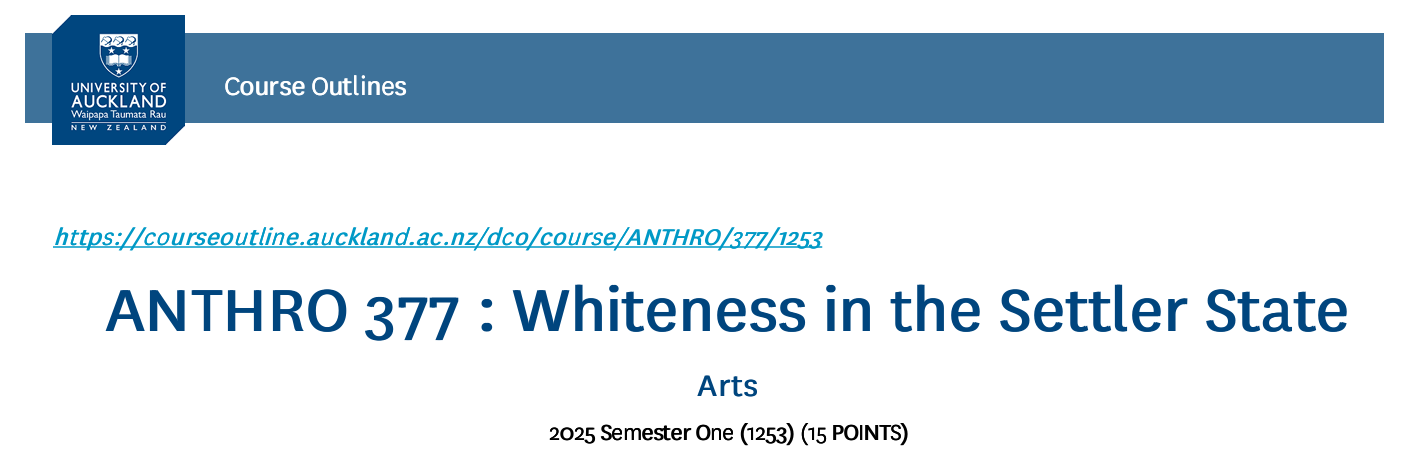
This course is a major tool of radicalisation.
So, let’s go through it together.
Firstly, the Prescription:
“Examines the concept and construct of “whiteness” within the construct of the “settler state” through the lens of critical anthropology. Explores the development of white supremacy as an ideology and expression of social and political power and provides students with the conceptual and intellectual frameworks to consider the invisibility of whiteness as a social habit.”
Read that prescription again, and again if need be.
- “whiteness” of the “settler state” from the “critical anthropology” perspective.
Not historical occurrences, not nations or countries, not the messiness of history, but an incredibly vague and racist labelling of ‘whiteness’, the weaponised term of ‘settler state‘ and the thought-leader known as “critical anthropology”.
And look at the second sentence:
“Explores the development of white supremacy as an ideology and expression of social and political power and provides students with the conceptual and intellectual frameworks to consider the invisibility of whiteness as a social habit.”
White supremacy is, according to this taxpayer-supported author, “the invisibility of whiteness as a social habit.”
Let’s cut through that academia babble. The university is proclaiming its superior judgment over what you think; that your “invisibility of whiteness” is ‘unconscious bias’, which is “asymptomatic racism” (John Tamihere’s input).
Any opinion you hold can be labelled as ‘white supremacy’ if it is not what the academics think.
That is what your children are being trained to believe.
The next part:
“COURSE OVERVIEW
This course uses anthropology as a core discipline to examine “whiteness” as a social construct within the framework of “settler-colonial countries,” of which Aotearoa – New Zealand is one.
Whiteness plays a pivotal role in the construction of kinship, identity and power relations both within local communities and the international sphere in the post-colonial world.
Using anthropology and anthropological theories as frameworks, this course will draw on literature from New Zealand, Australia, the United States and Canada to interrogate the construction of Whiteness and the role that it has played in the past and contemporary world.”
Again, that ugly term appears: “whiteness”.
How is it acceptable that such a flagrantly racist term is acceptable in New Zealand academia? Its origin is steeped in racism and Marxism, and its entry into New Zealand’s highest-ranked university is a stain upon its self-proclaimed statement “Discrimination is not OK”.
How about ni##er? Is that also acceptable at the University of Auckland? What about g##k? Or f#g? Or k##e? It appears that the only acceptable slur is also a taught subject. Let that sink in.
Also of interest is that the four countries chosen: New Zealand, Australia, USA and Canada, are widely regarded as having a tertiary sector that suppresses free speech along with a compromised academia. Critical thinkers in academic staff are either fearfully silent or too powerful to suppress.
“This course draws substantially from work within Anthropology but also outside, which could include work such as that of Ahmed, Fanon, hooks, Kendi, Lee-Morgan, Lourde, Meghji, Oluo, Ormond, Pihama, Smith and others.“
The authors used for the readings are interesting. I had a cursory look, and these academics are a mix of radical feminists, communists, LGBTQIAP+ activists and adherents of Critical Race Theory, of which ANTHRO 377 is built upon. Very dangerous, very far to the Left.
Finally:
“This course is for stage 3 students only, and students are advised that they may find course material challenging and that they may be asked to engage in significant self-reflection in order to engage properly with the academic work.”
The setting for this course is for third-year students, and as I searched through various literature, I found the following:
Psychologically, by Year 3, cognitive dissonance is reduced—people justify their commitment to avoid the pain of questioning it. Social bonds within the group are strong, and fear of ostracism keeps them in line. The process isn’t always formal; it can happen subtly in environments like schools, workplaces, or online echo chambers, though the timeline varies.”
This aligns with what others and I have been warning about for years.
At the time of this course, students will likely be in their early twenties, well-inculcated by their academic demagogues and obedient to the social norms they must conform to for social acceptance.
ANTHRO 377 is a tool of radicalisation. It is racism, division and a twisted worldview where any disagreement can be labelled as ‘white supremacy’. It is antithetical to equality and racial unity.
I am appalled that it has been allowed in our nation. I am disappointed that we prop up the university with our taxes. And I am saddened that our universities have become nothing more than machines that manufacture.
So, when my daughter asks if she’s going to university, I’m torn.
I want her to chase knowledge, but not at the cost of being taught to see the world through a lens of resentment and division.
What do I tell her now?

